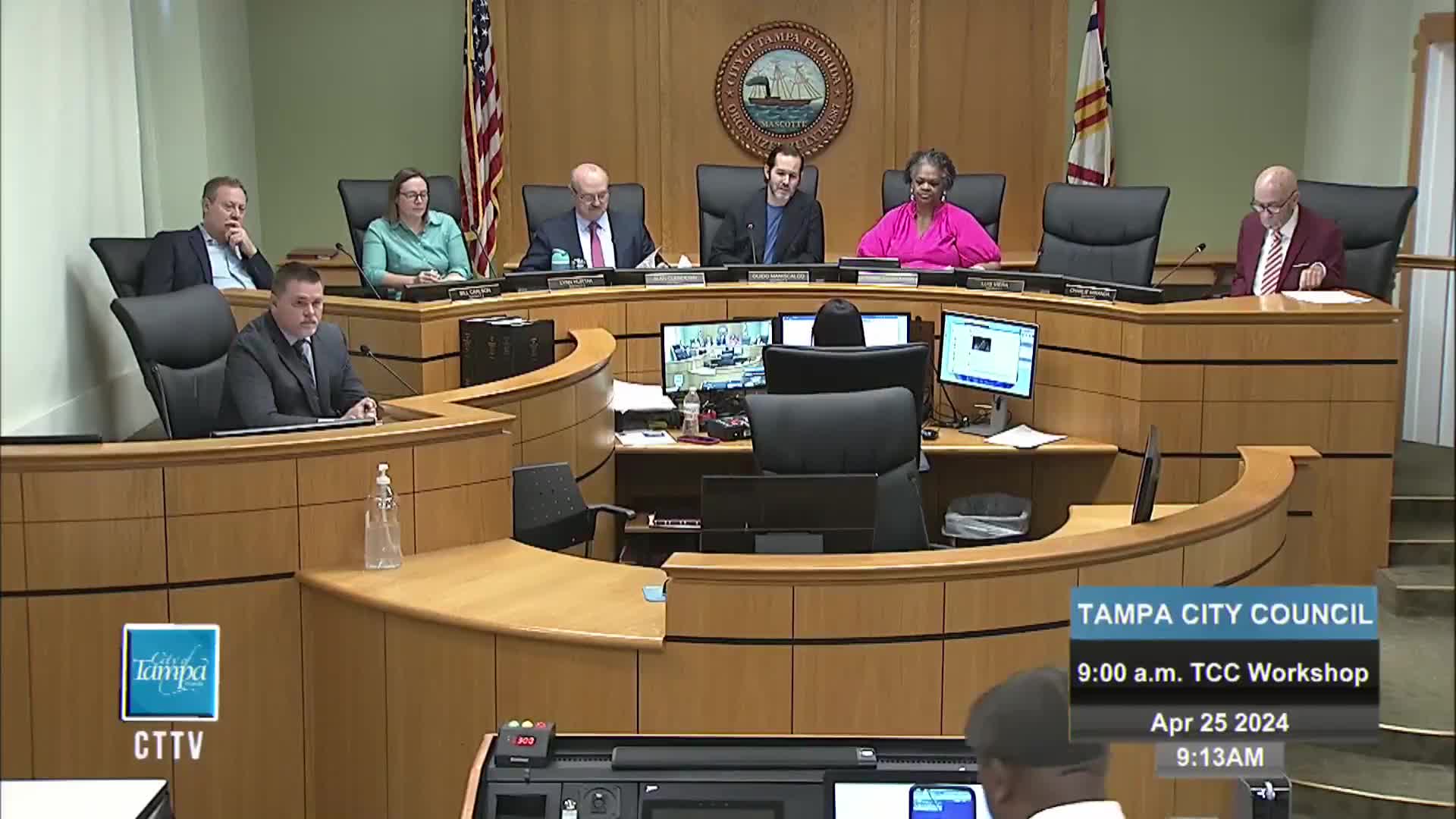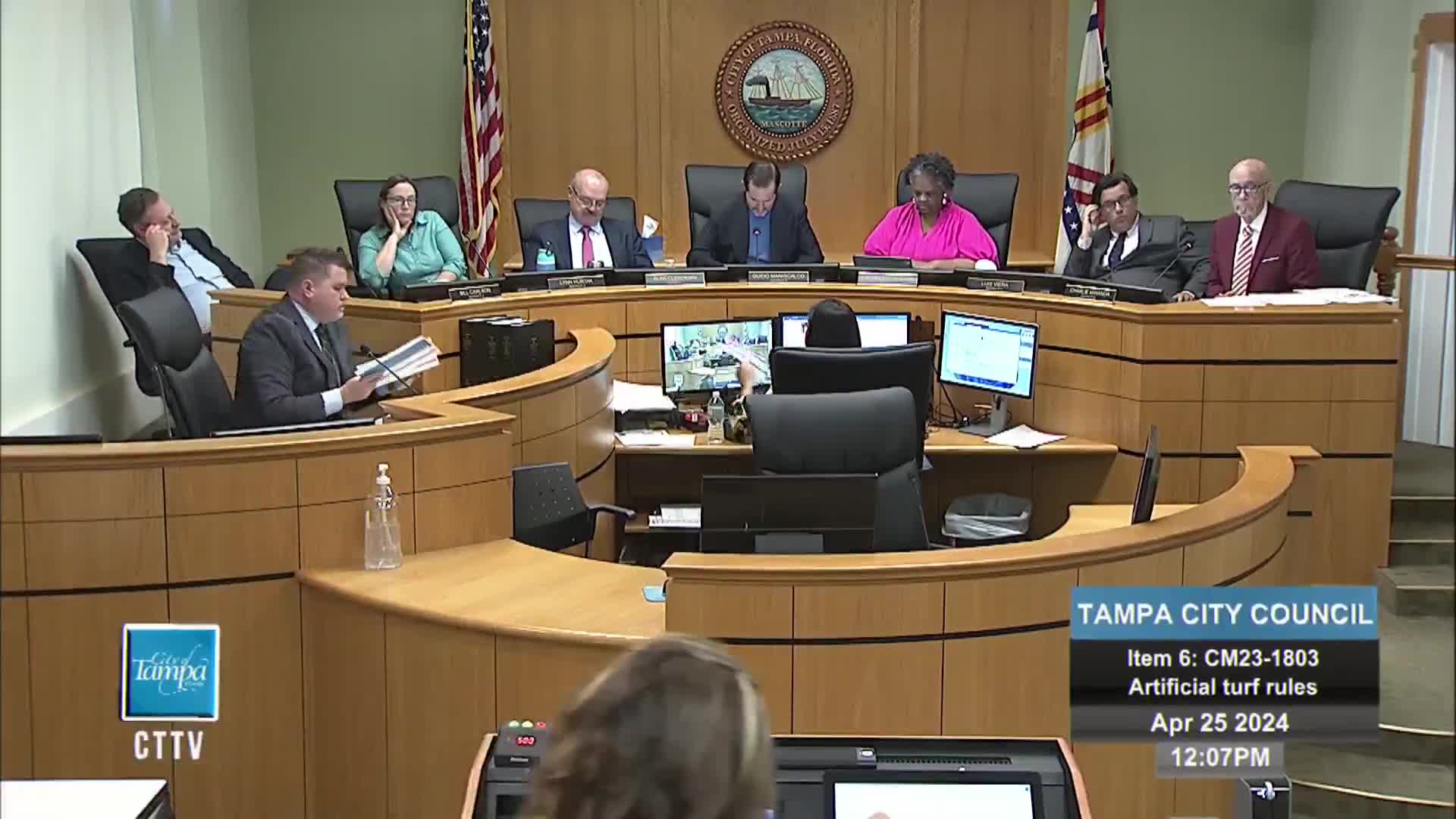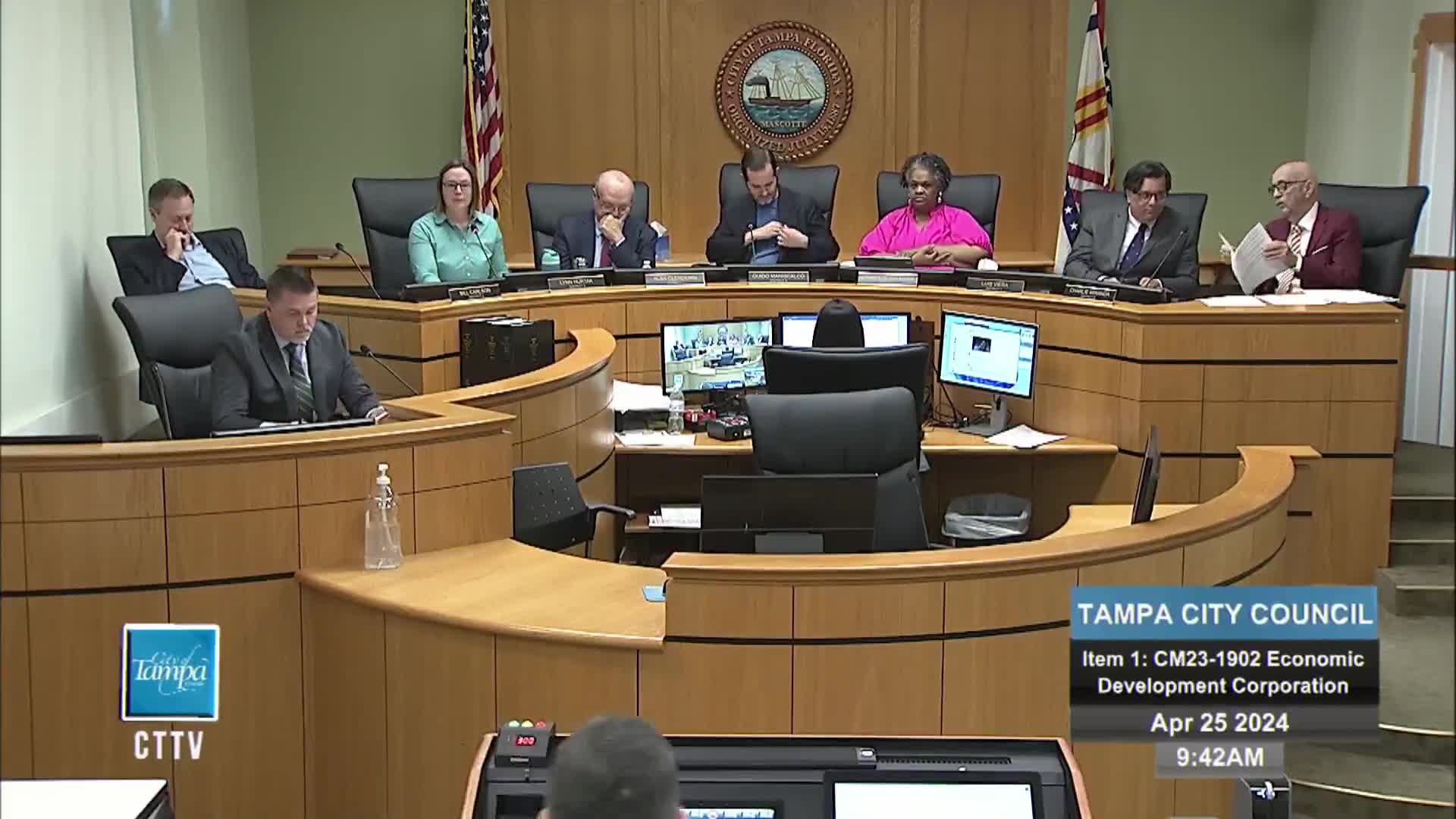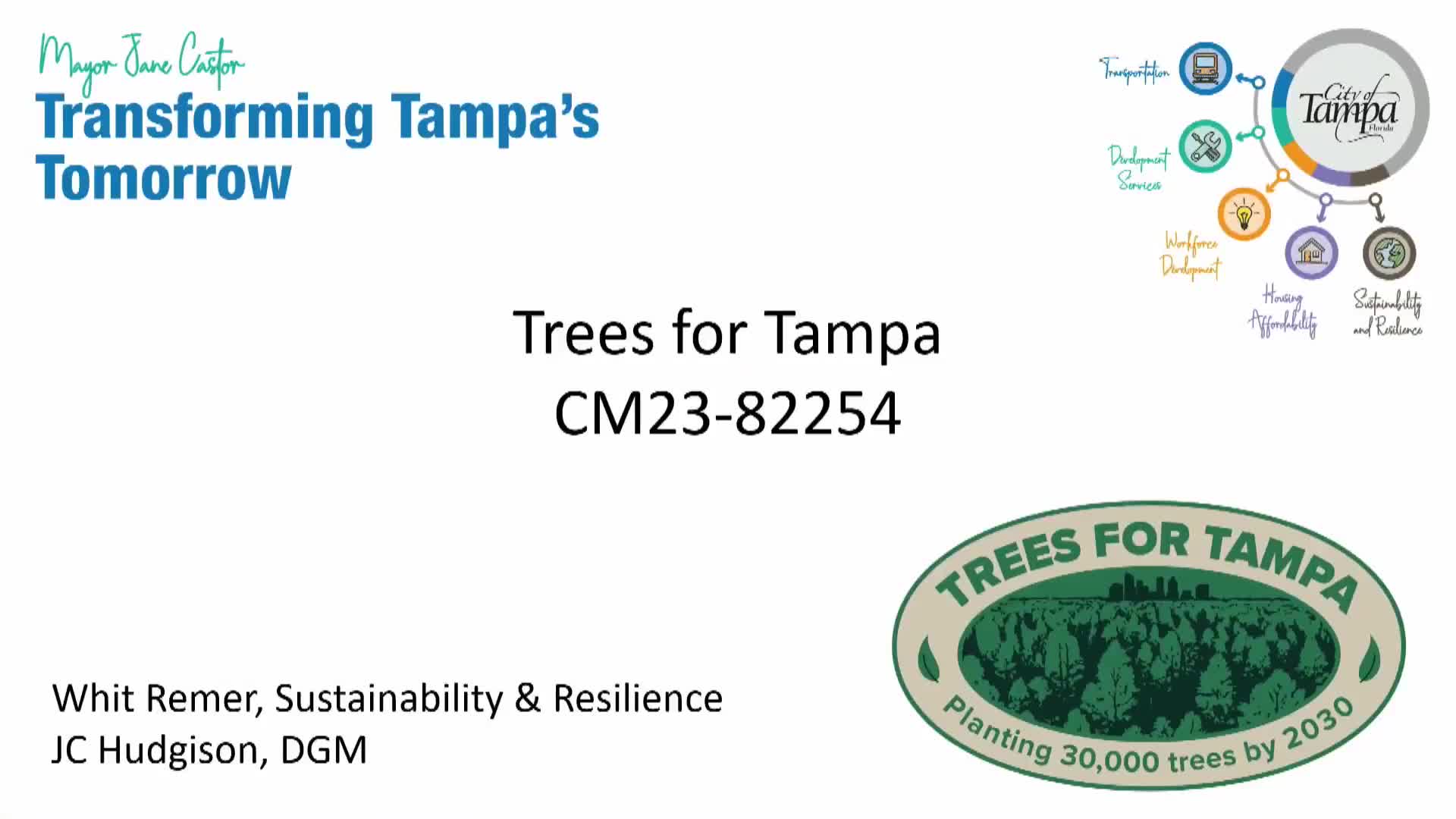Article not found
This article is no longer available. But don't worry—we've gathered other articles that discuss the same topic.

Residents press Tampa council to vet members and outcomes of Resolution 568 reconciliation committee

Council schedules follow-up after staff outlines limited permit approach for artificial turf

Tampa officials outline workforce strategy, returning‑citizen supports and outreach plan for higher wages

